I’ve been dragging my heels with writing this post because I don’t want to be finished with The Interest of Love yet! But audience opinions really took a turn for the worst in the last few weeks, so I feel more inclined than ever to share my love for it. If I can leave one person who was seething before feeling a little better about how things turned out, then that’s a win.
A lot of this last post has to be dedicated to Su-yeong, who monopolises the conflict in (and discourse surrounding) these last few episodes. From pretending she slept with Gyeong-pil to drive Jong-hyun and Sang-su away, to disappearing without a word, to keeping herself hidden for four years, she makes some deeply questionable choices in this last quarter. I recognise why people are angry about it; it’s behaviour that’s hard to defend. Let me try to offer a kinder perspective, though.
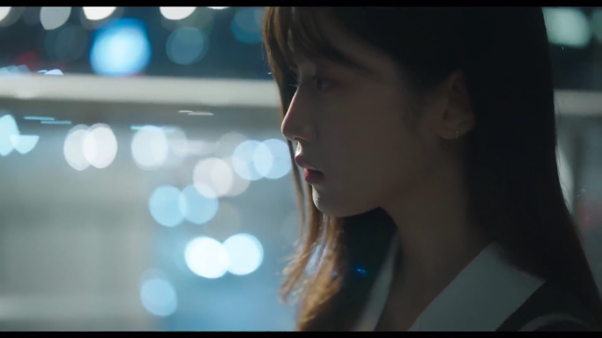
So, why did she pretend to cheat?
I won’t insult your intelligence by saying it was for something as noble as trying to protect Sang-su by redirecting the inevitable scandal. She was ready to sink by herself, but for far more selfish reasons. Su-yeong probably couldn’t see a way to amicably end her relationship with Jong-hyun. As I said last time, if Su-yeong was capable of difficult, honest, compassionate conversations, then we wouldn’t be here. She would have resolved her issues with Sang-su in week one and we wouldn’t have a drama. So it’s upsettingly in-character for her to do the cruellest thing possible.
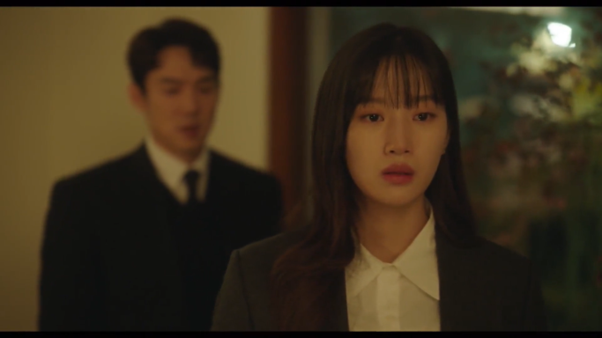
When Mi-kyung confronts her, Su-yeong says with a practiced coolness, “You said you would keep liking me to make me uncomfortable. But I want to feel comfortable now. So go ahead and hate me.” Once upon a time, Su-yeong’s father found it easier to be the villain than to explain to his grieving daughter the complicated, messy, and shameful truth. What did he think he was protecting by doing that? I’m inclined to think that the only thing he was truly protecting was his ego.
Sang-su is willing to give up everything for Su-yeong, and that is terrifying. She may actually have to be happy. If she is to commit to him properly, she’ll have to be emotionally vulnerable, get hurt, heal, forgive, and that’s a price for happiness that she isn’t willing to pay. So she throws it all away.

It is easier for Su-yeong to adopt the role of the villain than speak her mind, because if she’s just written off as a tease, a heartbreaker, an all-around bitch, then there’s no need for her to justify her actions or take responsibility for them. There’s no need to let her walls come down. Su-yeong is a coward, prepared to confine herself in an internal prison as long as it keeps her safe.
So is Su-yeong actually the villain? No, because like always, the drama itself refuses to villainise her. The drama itself doesn’t judge the characters for the horrible mistakes they make, examining them instead with measured sensitivity, so I owe them the same. I was a little pissed off with her in episode 14, I won’t lie – running off without a word like that is Jong-hyun behaviour – but I also understood the internal logic behind that decision. If she had decided to prioritise her future happiness properly for the first time, then Sang-su wasn’t reason enough to stay in the toxic workplace or in that cold and mirthless flat. It wouldn’t have been much of a happy ending. Also, I’ve been a drama fan for about a decade now, and I’ve watched a lot of classic dramas. The heroine disappearing and the hero having to track her down? That’s peak angst, and it’s good every time!
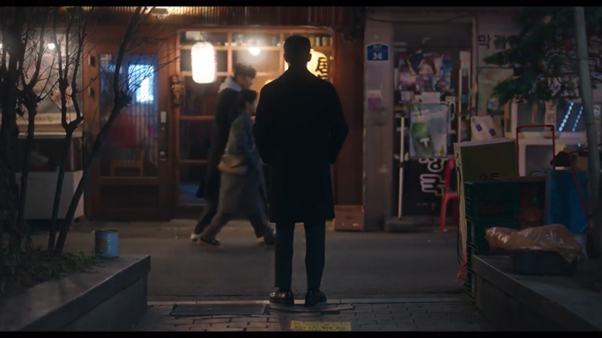
And I think it’s honestly really brave of The Interest of Love to exhibit characters who aren’t growing and learning at the same pace. Growth isn’t linear. People take leaps forward and stumble back and veer off sideways and set themselves straight and sometimes find themselves lost completely. Su-yeong isn’t growing at the same speed as Sang-su or Mi-kyung, but they’ve all very recently done stupid things. They’re all on their own journeys, and I don’t want to single her out anymore.


On that topic, the way Sang-su apologises to Mi-kyung for all of his wrongdoings is a stand out scene. It’s kind of stunning how much Sang-su has grown since that first rejection, for instance. Finally living up to his name in a meaningful way, he really comes into his own in these last few episodes, owning his mistakes and regrets and shortcomings with the maturity that our heroine comparatively lacks. The way he responded to Su-yeong’s rejection this time around was the clearest reflection of who he’s become – far from the Nice Guy of episode one, he doesn’t take her cruelty personally anymore, able to recognise that this behaviour comes from her own self-hatred and show her compassion despite his hurt feelings. Obviously, the number of chances he gives her is kind of insane, but the strength he finds to forgive her over and over is honestly really commendable. He’s become the man he always wanted to be, one who is true to his own feelings and actually able to live without regrets.

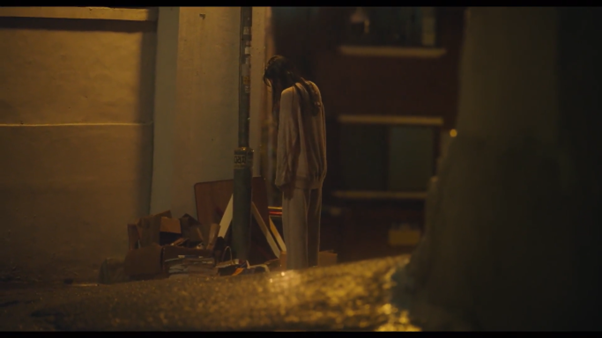

On the flip side, you’ve got Jong-hyun. Jong-hyun is what you get when a naive, callow dreamer (and a beloved only child) comes face-to-face with the hard reality that they’re actually not that special. Jong-hyun isn’t hateful because he’s poor, or in a menial job, or struggling at home, or failing his exams, or relying on Su-yeong. He’s hateful because he lets those things define him, poison his sensibilities and prospects. It’s been truly depressing watching him take a downspin, but it was necessary for him to learn this lesson: How you respond to setbacks is what defines you as a person, not the setbacks themselves. What did he do when things got hard? Immediately tried to run away with no explanation for his new girlfriend. What did he do when they weren’t improving? Emotionally distance himself from her, put a wall between them, go out on weekend-long benders and get into fights.
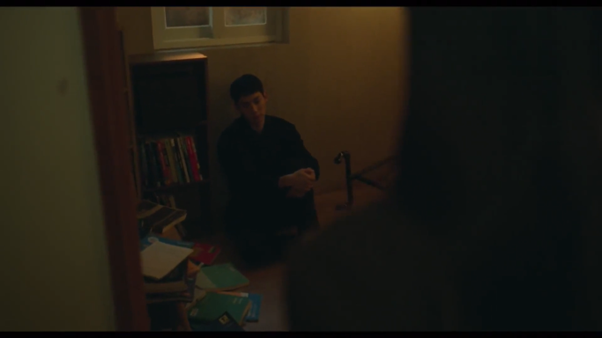
To his credit, for all of Jong-hyun’s dreariness, he is something completely new. This character is a dark twist on the puppyish second lead, and I got a lot of sadistic pleasure out of watching his arc unfold. Props to Jung Ga-ram for taking on a character who is the total inversion his breakout role, the dreamy second lead he played in Love Alarm, and for letting him be ugly. It’s a shame how he was side-lined by the end, though, because he ended up missing out all the good stuff. The other three got lessons in love and an earned sense of contentment, and all he got was a police badge.
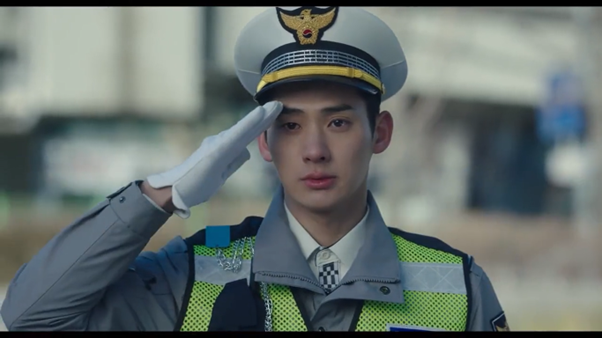
The sentiment that ended up underpinning the show’s ultimate philosophy was an offhanded one: “I told myself, ‘It’s nothing special. It’s just love.’ The most common thing of all. Just love.” What our idiots come to realise is that love isn’t a grand stage. It’s not the answer, the solution, or the prize. It doesn’t always fix us. It is a mundane, ordinary part of life. It’s going through life with someone else. And while this realisation takes the weight off their shoulders, it also complicates things. When it is revealed that Su-yeong’s mother was the adulterer, not her father, it becomes clear how they are supposed to mirror the OTP: they chose to keep living their lives together, despite the fact she abused his trust and practically tore their family apart. Their bond could have been shattered by such a betrayal of trust, but it endured instead. What could Sang-su and Su-yeong’s love endure? Both Sang-su and Su-yeong, at some point, had their doubts about whether they were ready to pursue a real relationship, one that persists. They were unlucky enough to never be ready at the same time, and that’s ultimately what held them back. Not their difference in statuses or anything else, just their convictions. And that’s ultimately why they weren’t right for each other back then.
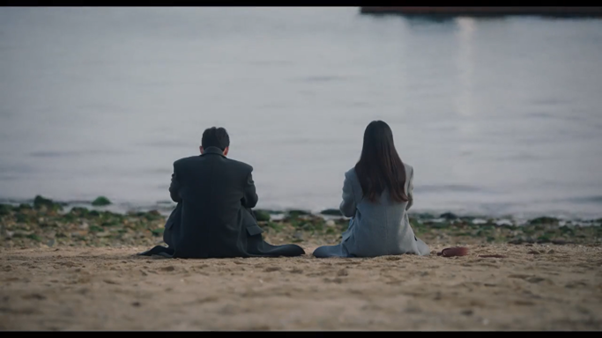
I’m not sure I expected The Interest of Love to answer any of the questions it posed about wealth, marriage and society, but in the end it did come down firmly on one side. It recognised that wealth and status are strong motivators in Korean society, and affect how someone is socialised from the moment they’re born, leading to conscious or subconscious beliefs and behaviours that are hard to undo. But the show dismissed the pursuit of wealth and status as a perfect valid and practical way to live life in this society. Only once the characters free themselves from obsessing over their place in the hierarchy do they find freedom and happiness. Despite all odds against them, Sang-su and Mi-kyung’s mothers are still friends. Su-yeong is better off for letting her ambitions at the bank go.

I’m of two minds about this conclusion. The idealist in me wants to be happy. Let’s all abandon the trappings of Capitalist corporate society and set up artsy coffee shops! Sounds great! But recognising that wealth and social status aren’t everything doesn’t eradicate the fact that they do kind of influence everything, so it’s kind of naïve to conclude that if people just stop caring then they can shake off any kind of wealth-based discrimination.
That’s probably why I found Mi-kyung’s reconciliation with her father surprisingly touching, and the best part of how these themes were resolved. Mi-kyung’s father is someone who has made wealth and status the central part of his life, and in doing so has made Mi-kyung grow up feeling emotionally neglected. Throwing burdensome gifts at her and controlling every aspect of her life, after all, is not the best way for a parent to say ‘I love you’. But from his generational and class-based perspective, this was the best he could do – he’s a rich Korean patriarch, of course his love language is attending to his child’s every need and trying to establish a good life for her!



This new insight into his character doesn’t excuse his behaviour and the scars he gave her, but it does allow her to make peace with him. As you grow up, you get a better understanding of your parents and their flaws, and even if their perspectives are still incompatible with yours, sometimes you can live amicably with them anyway. Mi-kyung accepts her privilege gracefully, which is honestly all she can do.
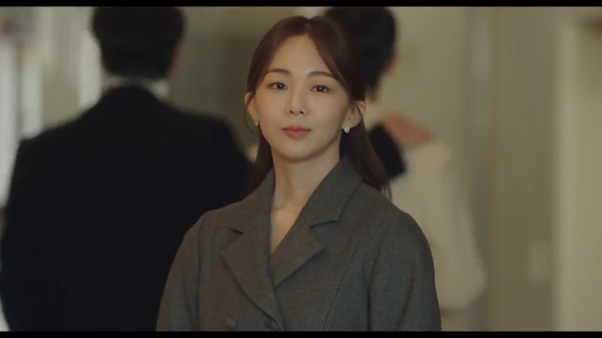
I’ve jokingly said that this drama was my therapy, but in a way, I think it really was – it normalised my mistakes, justified my hangups and insecurities, and provided a clear character study to evidence that time really does heal everything eventually. Mi-kyung, who once thought she could never love anyone after Sang-su, is now in a happy relationship, much kinder to herself and smarter about her feelings. Once given enough time, Jong-hyun eventually became a police officer, even though he was once certain he’d never pass the exam. And Sang-su and Su-yeong still think about their “what ifs”, but they don’t obsess over them – they accept the choices they made, and look forward.
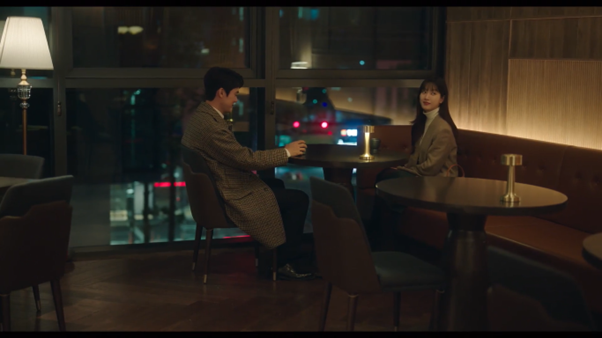
Some decried this open ending, saying that Su-yeong hadn’t shown a modicum of growth, any indication that she had grown out of her destructive patterns, but that’s exactly what I liked about it. Growth isn’t linear, and time isn’t finite. Who knows how these two will change from here on out? We leave them climbing up the seemingly endless and extremely symbolic Hill of Oblivion, their futures uncertain. But in The Interest of Love, the future is a tangible thing. It’s coming, like waves lapping the shore, washing away the past away, swallowing up the sandcastles we made, preserved in photographs and paintings, so we can build new ones. It’s an ever-present comfort, and a source of hope.

I’m the one kind who sees the glass half full, so for me it was a happy ending.
I think Su-yeong evolved. She stopped hating her parents for her brother’s death. It was a tragic accident. The cheating part was a different thing and it was between them, her father forgave her mother. She left the toxic environment of the bank. If I would have been happy if for once, she was the one who made the first move to Sang-Su, clearly she still loved him, everything in her Café was about him. She walked around the rampart hoping to see him.
When she asked him if he forgot something, he answered no. For me, it was like they were talking about their feelings.
LikeLiked by 2 people
Absolutely, I think him saying that he hasn’t forgotten anything essentially meant “I remember all the good and the bad, and I accept it, and I still love you”.
LikeLiked by 1 person
Beautifully written and it makes a lot of senses, kudos to you 🙂 But I beg to differ regarding Soo Young’s development. Actually, I can see her explicit departure from her status quo since her decision to leave the bank for good. Yes, she was trying hard, again and again and again to get promoted. But at that point (end of ep 14?), it seemed that she knew for sure that her efforts would eventually get nowhere, and as long as she remained at the bank and kept trying, the very same nightmares would still haunt her and make her who she was, the ‘pretentiously’ happy and calm Soo Young. And by the end of the finale episode, I could clearly feel her much more relaxing and comfortable vibe, toward life, toward people and especially toward herself. Actually, she was pretty all along in previous 15 eps, but I never felt that she glowed, but by ep 16, she really shines in the way she looks, smiles, the way she walks and especially the way she leans toward and talks to Sang Su, I love that ‘butterfiles in the stomach’ vibe that exudes from someone that is ready to open her heart and get the love she wants. And I truly feel that the opening ending hints a happy ending for the main couple, for they learned their lessons, and accepted the fact there were no points in their what-if timeline, they could come together, clean slate, and would be able to build a healthy relationship with a bright future. But now they’re grown up enough to stay together. But it’s just my feeling and guessing, life might be much different. But your review truly brings a warm and uplifting atmosphere to people like me, who appreciates this drama a lot and had a great time reflecting on life and love while riding the roller coaster along with our character. Thank you so muchhh!
LikeLiked by 1 person
You deserve more comments on your site.
LikeLiked by 1 person
This made me so happy – I love how many people engaged in this show so deeply with me, and your interpretation is so hopeful and lovely 🥰
LikeLike